Museums & Institutions
Lost for 40 Years, a Historic Group of Works by Groundbreaking Australian Aboriginal Artists Is Finally Getting a Museum Show
The paintings, which turned up in a shipping crate in 2019, now have their audience.
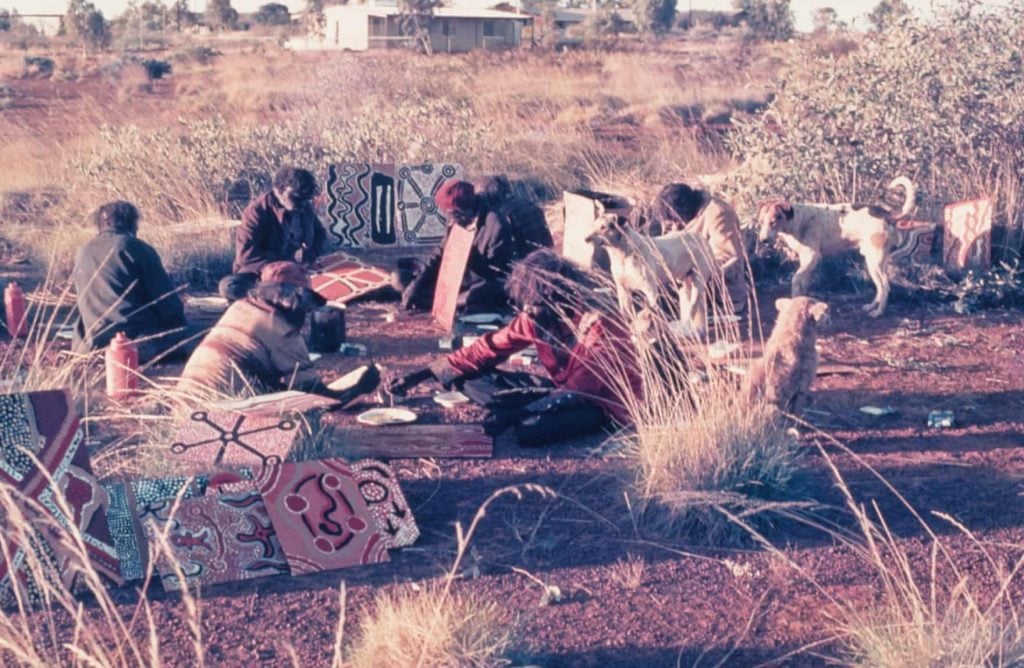
The paintings, which turned up in a shipping crate in 2019, now have their audience.

Sarah Cascone

It took nearly 40 years, but an exhibition of groundbreaking Balgo paintings, which helped give birth to the contemporary Aboriginal Australian art movement, is finally on view.
Lost for decades, the paintings turned up in a shipping crate in 2019, and, after being cleaned and restored, are on display in “Balgo Beginnings” at the South Australian Museum in Adelaide.
In the early 1980s, the tiny Indigenous community of Balgo learned of the burgeoning desert painting movement of Papunya, near Alice Springs, some 400 miles away. Inspired by the example, they created their own board paintings. Years ago, these early works were put into storage ahead of a planned exhibition, but something went wrong, and the art went missing. The artists who made them became fixtures of Australia’s Indigenous art community, but for decades, the first works were lost.
John Carty, the South Australian Museum’s head of humanities, first came to learn of the paintings some 20 years ago, when he was studying anthropology at the University of Melbourne and happened upon some photos of them.
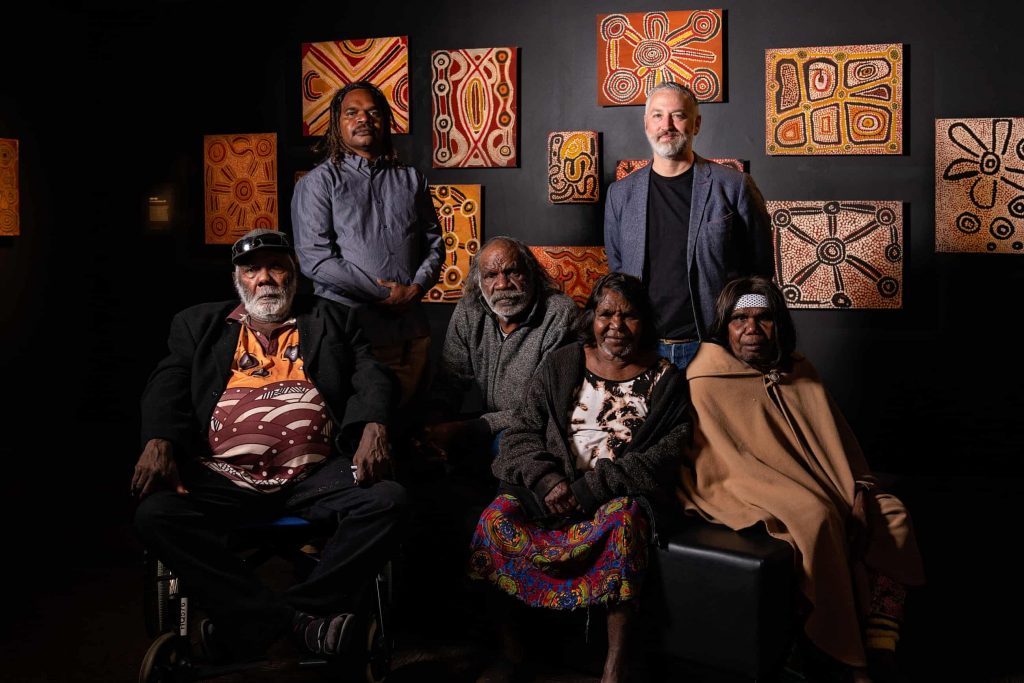
Balgo artists and John Carty at “Balgo Beginnings” at the South Australian Museum. Photo by Brad Griffin, courtesy of the South Australian Museum, Adelaide.
Intrigued, he wrote to the Balgo community, and ending up spending three years living there. Soon, Carty came to realize an important chapter of Balgo art history was missing.
“The story was always unsatisfying, vague,” Carty told the Guardian. “We knew those paintings were out there somewhere… I searched for them, and I never gave up hope, I felt like they were out there somewhere.”
All that was left of the community’s artistic beginnings was a faded 1982 photograph of a painting camp in the desert. But that image allowed Carty to recognize the lost works when they finally turned up in the nation’s remote northern Kimberley region.
The shipping container where they were stashed flooded back in 2011, and the unidentified owner had finally gone to check on the contents. He didn’t know where the paintings had come from, but a local health worker recognized the names in the signatures put him in touch with Carty.
When Carty opened the email and saw the paintings, he couldn’t believe his eyes.
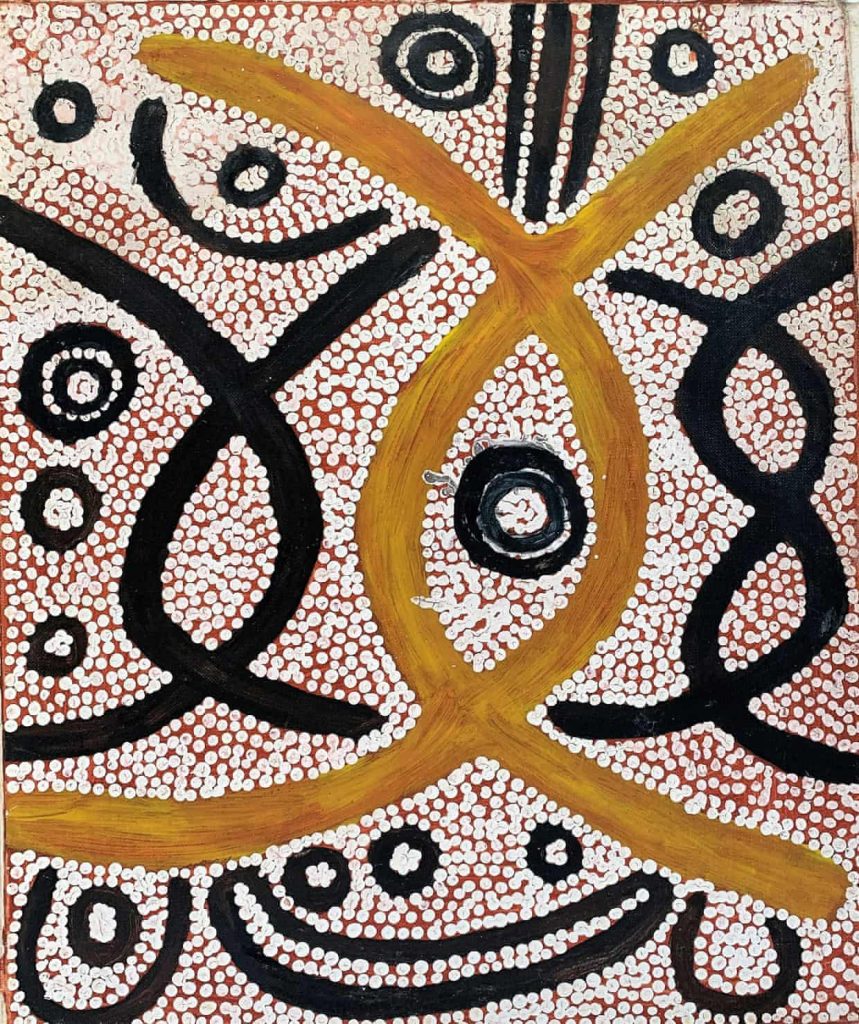
Sunfly Tjamptitjin, Untitled (1982). Courtesy of the South Australian Museum, Adelaide.
“A few people at the right moment looked at these things before they were going to be thrown out,” Carty told ABC Kimberley. “I opened this email, and it was all of those paintings… I cried. It was just an amazing thing to see.”
The works were muddy and moldy, and Carty worried they were beyond saving. But experts in Adelaide spent two years working “dot by dot, conserving the water damage, removing the mold, and restoring them to their former glory that’s nobody’s ever seen,” he said.
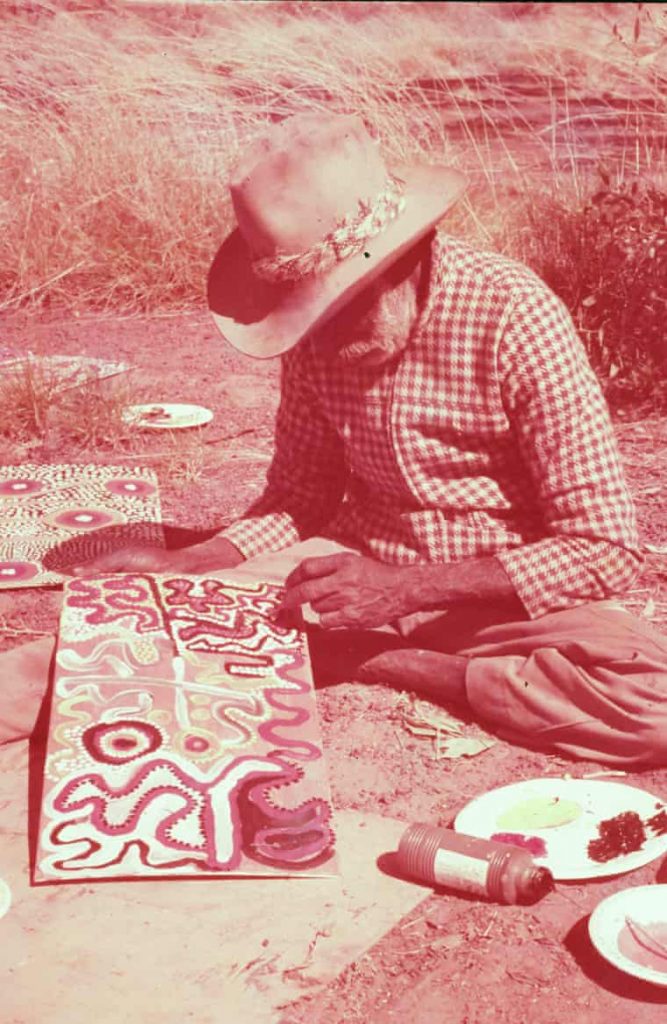
Alan Winderoo painting in 1982. Photo by Warwick Nieass, courtesy of the South Australian Museum, Adelaide.
The rediscovered paintings are on view along with new art by members of today’s Balgo community—the children and grandchildren of the original artists: Pauline Sunfly and her father, Sunfly Tjamptitjin, Jimmy Tchooga and his grandfather, Alan Winderoo, are represented side by side.
“[People] don’t know that story, they only know the new paintings. Our beginnings got lost,” Tchooga told the Guardian. “Now everyone can see where the Balgo story started.
See more photos of the show below.
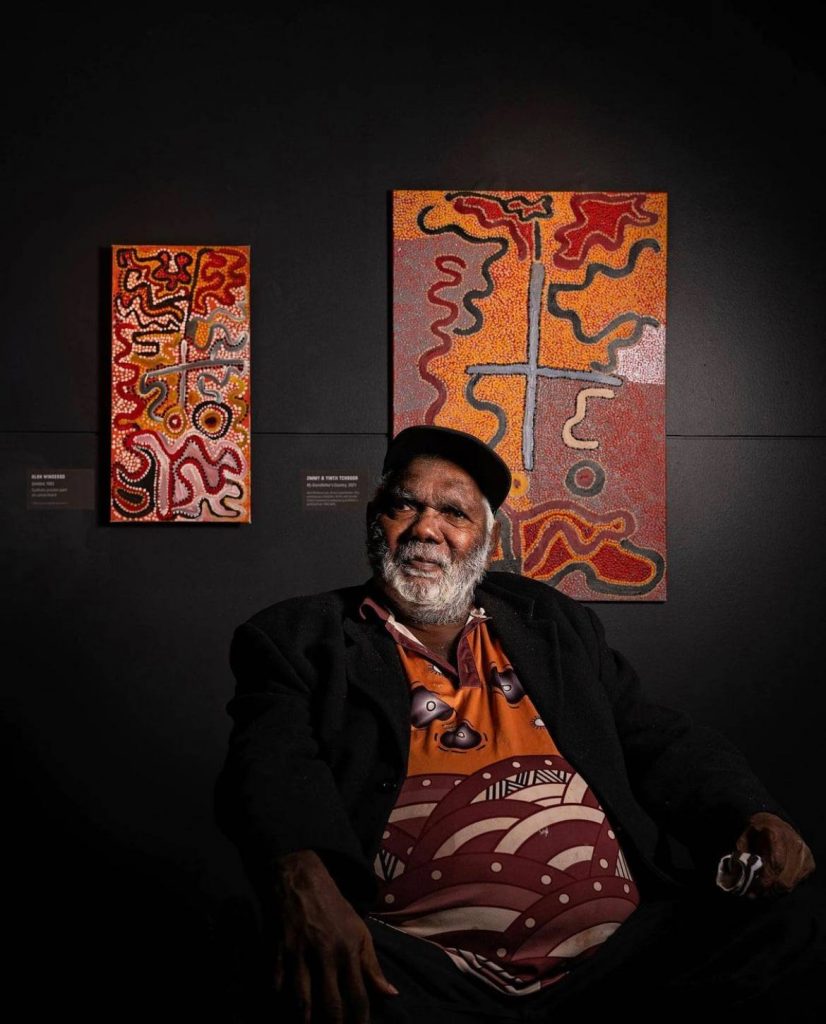
Balgo artist Jimmy Tchoog. Photo by Brad Griffin, courtesy of the South Australian Museum, Adelaide.
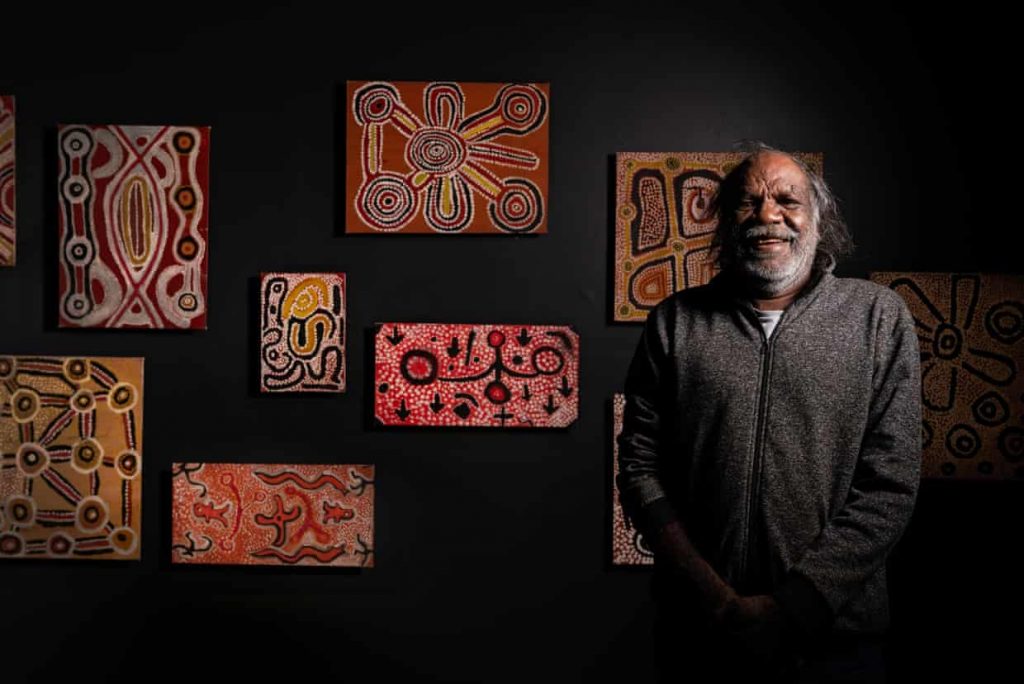
Gary Njamme, one of the only surviving original Balgo artists. Photo by Brad Griffin, courtesy of the South Australian Museum, Adelaide.
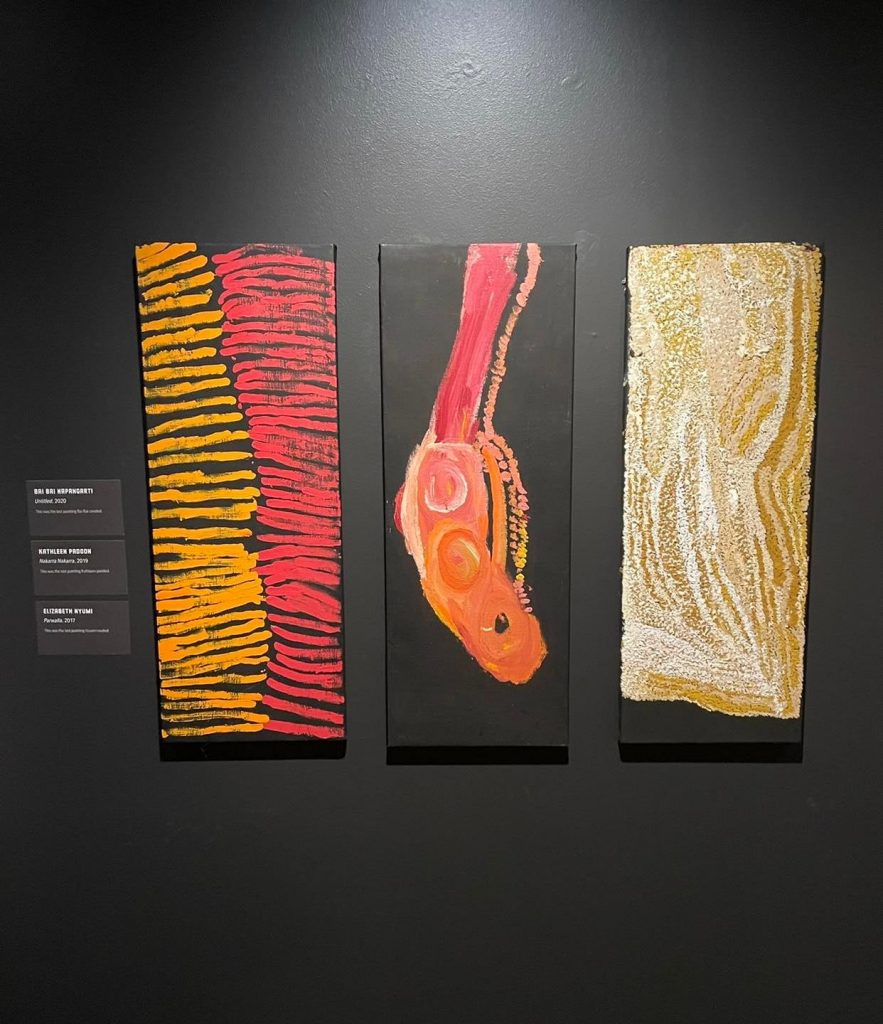
Works by Balgo artists Bai Bai Napangarti, Kathleen Padoon, and Elizabeth Nyumi. Collection of Warlayirti Artists – Balgo. Photo courtesy of the South Australian Museum, Adelaide.
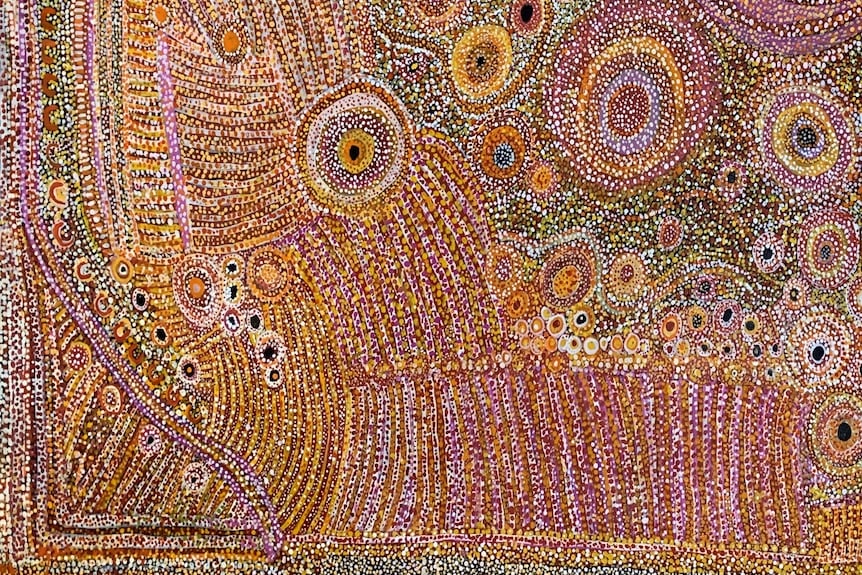
Eva Nagomarra, Kukatja Ngurra (2020). Collection of Warlayirti Arts – Balgo. Courtesy of the South Australian Museum, Adelaide.
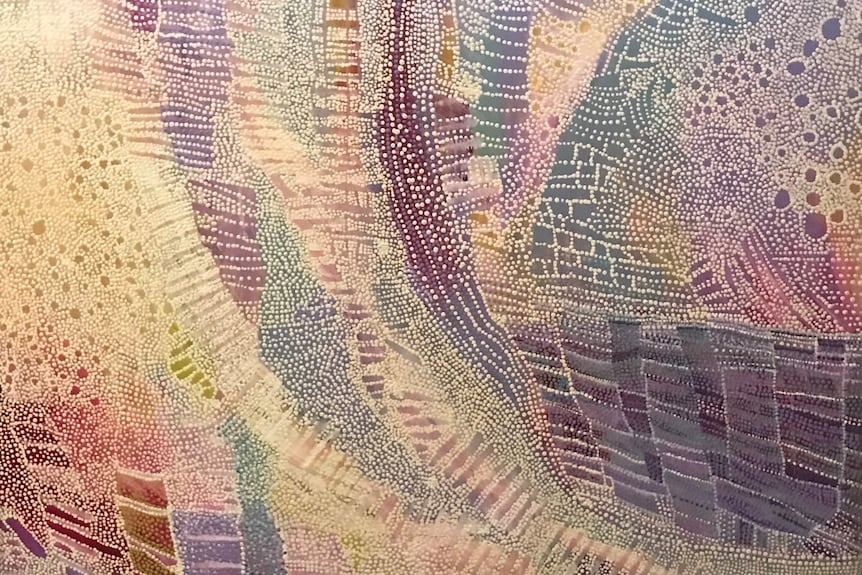
Patsy Mudgedell, Untitled. Collection of Warlayirti Arts – Balgo. Photo courtesy of the South Australian Museum, Adelaide.
“Balgo Beginnings” is on view at the South Australian Museum, North Terrace, Adelaide SA 5000, Australia, October 15, 2021–February 6, 2022.